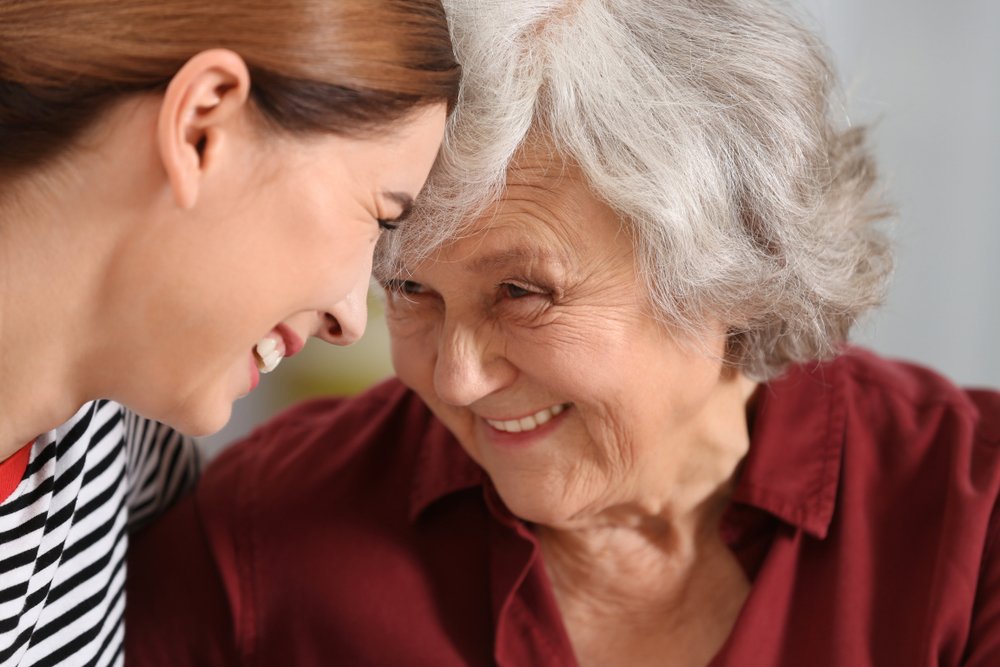Care for Caregivers: Helpful Tips and Tools
Over 50 million Americans provide care to a loved one. That number represents a larger population than you might think, as many types of caregivers exist. Elderly couples give care to one another. Old friends care for and manage end-of-life care for each other. Mothers and fathers of disabled children provide a lifetime of caregiving, and many children grow up to provide care for their aging parents.
Caregivers play an important role in the care and recovery of their loved ones, but this role can be challenging. We understand these challenges and are dedicated to providing caregivers with helpful resources, tips and tools.
Specialized Tools for Caregivers
A caregiver’s job can be physically demanding and take a toll on their health. Specialized tools, such as Hoyer lifts, are crucial in assisting caregivers in their caregiving tasks. Hoyer lifts are mechanical devices designed to lift and transfer individuals with limited mobility, making it easier for caregivers to move them safely and comfortably. These lifts are equipped with sturdy frames and slings that securely hold the person being lifted, minimizing the risk of injury for both the caregiver and the individual.
There are many other tools that aid caregivers, such as transfer boards, bed rails and shower chairs. Transfer boards provide a smooth surface for individuals to slide between surfaces, while bed rails offer added support and prevent falls during sleep. Shower chairs provide a stable seating option for individuals with mobility challenges during bathing. Tthese specialized tools enable caregivers to provide the necessary care while maintaining the safety and well-being of those they assist.
Community Support
Support groups play a vital role in providing emotional and social support for caregivers. These groups create a safe and understanding space for caregivers to share their experiences, challenges, and successes with others facing similar situations. Support groups offer a sense of community and companionship, allowing caregivers to receive validation, empathy, and advice from individuals who truly understand their unique struggles.
Caregiver support groups are facilitated in person or online, offering flexibility and accessibility. In these groups, caregivers can find solace, encouragement, and practical tips for self-care, stress reduction, and navigating the complexities of caregiving. Connecting with others in similar circumstances can help caregivers alleviate feelings of isolation and strengthen their coping skills, resulting in a more resilient and supported caregiving journey.
Recognizing Physical Burnout
Managing the day-to-day while providing care can take a toll s on a caregiver's overall well-being. The negative effects of caregivers' physical and mental health are well documented.
Physical Burnout Signs
There are many indicators that a caregiver may be experiencing high levels of physical stress. Here are some signs of possible physical burnout:
Health problems, such as frequent colds
Inability to concentrate and irritability
Sleeplessness
Exhaustion
Reducing Physical Stress
Take care of your health. Maintain a regular sleep routine. Light stretching or a daily walk may reduce stress. A daily relaxation and meditation practice can be beneficial as well.
Tap into online resources. The U.S. government's Eldercare Locator can connect you with your local Area Agency on Aging, which can guide you to resources in a community of support to help you deal with caregiving challenges.
Recognizing Mental Burnout
Caregiving is a challenging responsibility that a single person often carries.. According to the "Caregiving in the U.S. 2020" report, thirty-six percent of family caregivers characterize their situation as highly stressful. Burnout, both mental and physical, is commonly reported.
This helpful caregiver self-assessment questionnaire developed by the American Medical Association (AMA) and recommended by the American Psychological Association (APA) is a self-assessment to evaluate caregiver stress and burnout levels.
Mental Burnout Signs
There are many indicators that a caregiver may be experiencing a high level of mental stress. Here are the signs of possible mental burnout:
Anger and/or Anxiety
Denial about your loved one's condition
Depression
Social withdrawal
Reducing Mental Stress
Give yourself a break. A few hours of breakaway helps you decompress and recharge. Ask a trusted friend or relative to fill in occasionally for a few hours..
Join a support group. You are not alone in your struggle. Talking with other family caregivers who understand your challenges may raise your spirits and provide new solutions to various problems through a group of caregiver peers.
Ortho For All Caregivers
OrthoArkansas takes the stress out of orthopedic diagnosis and treatment for caregivers. We are dedicated to providing the best specialty orthopedic medicine, services and staff for patients of all ages.

